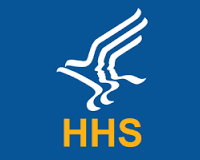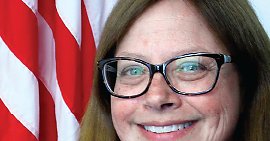HHS to Establish Behavioral Health Coordinating Council, Distribute $3 Billion in MH, SUD Funding

The Department of Health and Human Services (HHS) on Tuesday announced plans to establish a Behavioral Health Coordinating Council focused on collaboration and strategic planning across the department. The council will “ensure that millions of Americans receive prevention, early intervention, treatment, and recovery services for mental illness and substance use disorders,” an APA news release stated.
APA applauded the Biden-Harris administration for creating the council, which will be composed of senior leadership from across HHS. It will be co-chaired by Assistant Secretary for Health Rachel Levine, M.D., and Acting Assistant Secretary for Mental Health and Substance Use Tom Coderre. In an HHS news release, HHS Secretary Xavier Becerra noted that he is convening the council because the COVID-19 pandemic “calls for department-wide coordination.”
“APA looks forward to continuing to work with the Assistant Secretary for Mental Health and Substance Use, the Assistant Secretary for Health, and other HHS leadership on innovative and action-oriented approaches,” APA CEO and Medical Director Saul Levin, M.D., M.P.A., said in the APA release. “This Council has great potential to ease the challenges we face as we begin to recover from the pandemic’s impact on our society, and APA looks forward to assisting in [these] efforts.”<
HHS also announced that the Substance Abuse and Mental Health Services Administration (SAMHSA) is distributing $3 billion in funding made available through the American Rescue Plan Act of 2021, which Congress passed earlier this year. The Community Mental Health Services Block Grant (MHBG) and the Substance Abuse Prevention and Treatment Block Grant (SABG) programs will each disperse $1.5 billion to states and territories.
During a virtual event announcing the plans, Coderre said the MHBG funds will be used for a variety of treatment and recovery services for children with serious emotional disturbances and adults with serious mental illness (SMI). The SABG will be used to plan, carry out, and evaluate prevention, intervention, treatment, and recovery services for communities impacted by substance use. “These supplements to the block grants triple the amount of money available to help people who are suffering from mental and substance use disorders,” Coderre said.
The MHBG requires states to set aside 10% of their total allocation for first-episode psychosis or early SMI programs, Coderre continued, and SAMHSA is recommending states set aside 5% for crisis services.
“In the wake of the pandemic an unprecedented, and as of yet untold, number of Americans are faced with mental health and substance use disorders, particularly in communities impacted by structural racism,” APA President Vivian Pender, M.D., said in APA’s news release. “With the creation of this Council and this investment in mental health, the administration is taking a huge step forward.”
For related information, see the Psychiatric News article “APA Applauds Passage of COVID-19 Relief Package.”
Help APA Fight for Better Reimbursement for YOU – Take our Outpatient Insurance Survey by May 20
APA advocates on behalf of psychiatrists to increase reimbursement and decrease administrative burdens from public and private payers, legislators, and regulatory agencies. To ensure APA is well equipped to fight for better payment for clinical services, we need to know about our members’ experience with outpatient insurance participation. Your responses to questions regarding the nature of your outpatient practice and your experience with participating in health plan networks will help strengthen our arguments for appropriate reimbursement.
Will you please take 5 minutes today to complete this important survey?
Don't miss out! To learn about newly posted articles in Psychiatric News, please sign up here.






